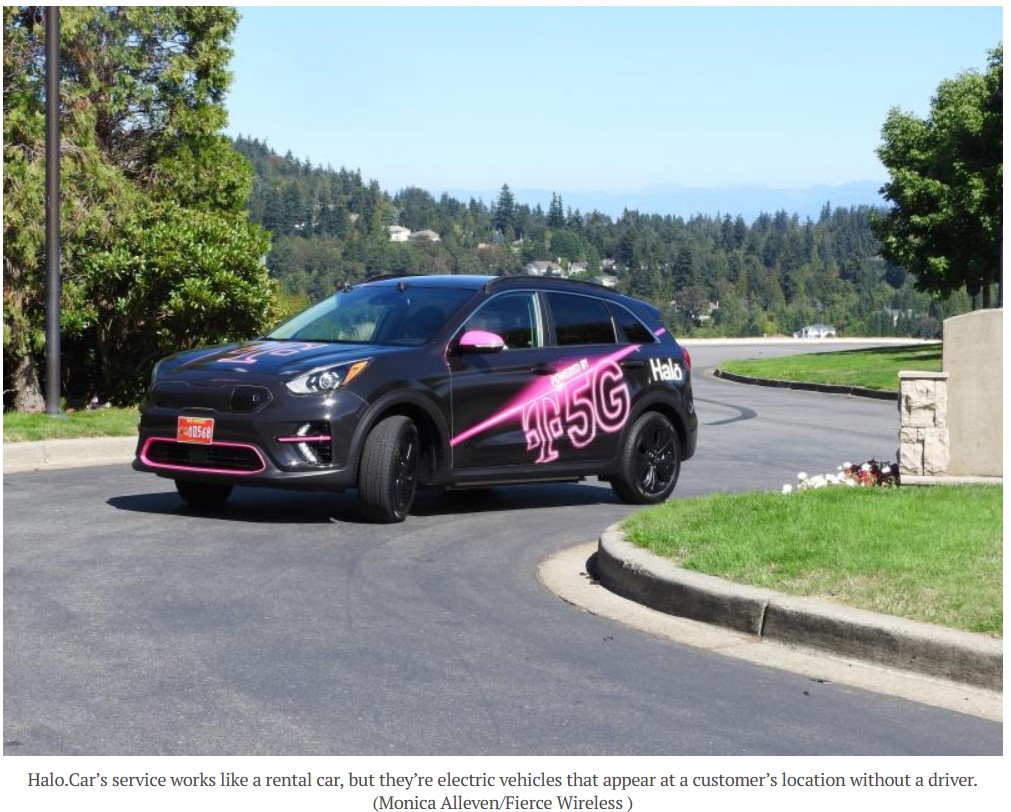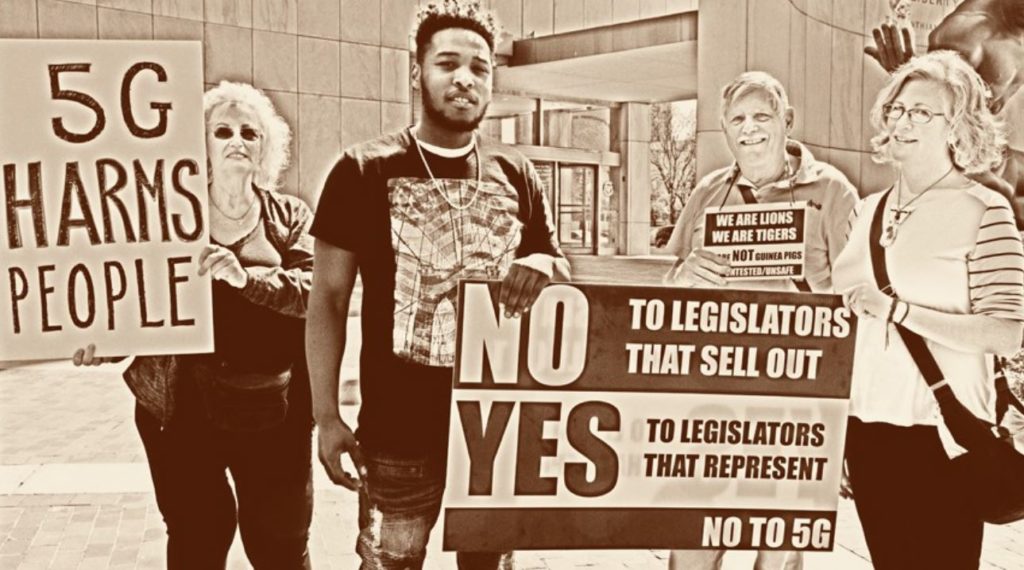Over the years, numerous incidents, reports, and studies have justified numerous reasons why Americans are concerned about and/or opposed to driverless aka autonomous vehicles (AVs) (see 1, 2, 3, 4, 5, 6, 7).
Ditto on 5G and other wireless technologies (see 1, 2, 3, 4)
Nevertheless, more completely driverless vehicles are being deployed and 5G as well as other controversial wireless technologies continue to be used for transportation purposes.
From Fierce Wireless:
T-Mobile revs up 5G for Halo, C-V2X
T-Mobile is touting its role in powering Halo.Car’s launch on the streets of Las Vegas.
After four years of testing, Halo.Car announced that it’s removing safety drivers from its remote-piloted vehicles. Customers in the downtown Las Vegas area can now get a Halo.Car delivered without a driver.
In a press release, Halo.Car said the vehicles are remote-piloted over T-Mobile 5G, “with AT&T and Verizon used for additional stability.” Halo.Car developed proprietary algorithms so the data streams will use the strongest wireless network connection available at any given time.
A world's first brought to life with the power of @TMobile #5G. 💪
Congrats @halocar_ and @anandnandak!! https://t.co/EGNTmZcXD5— John Saw (@JohnSaw) June 29, 2023
T-Mobile has been talking about its work with Halo for some time now. T-Mobile’s network has supported Halo since it began driving on Las Vegas public roads and T-Mobile Ventures is an investor in Halo.Car.
Related: T-Mobile 5G powers Halo’s driverless car service in Las Vegas
During a demo at the Mobile Future Forward event in Newcastle, Washington, last September, Halo employees showed how it works. Halo.Car had a vehicle – with “T-5G” emblazoned on the side – outside the conference entrance so that attendees could get in the car and take a spin around the parking lot.
A Halo employee was in the driver’s seat, and he explained that the steering wheel was controlled remotely by another Halo employee based at a Las Vegas work station that was set up to look like a car. The employee in Las Vegas steered the vehicle remotely based on the camera feeds from inside the car.
The compute, or cellular connectivity, was in the back of the car where a spare tire normally would go. For the most part, it looked like any other car.
At that time, Halo said it was working with the City of Bellevue, Washington, to bring its technology to that city, which happens to be where T-Mobile is headquartered. T-Mobile representatives told Fierce this week that there was nothing new they could share on that front.
Bellevue and C-V2X
Separately, T-Mobile and the City of Bellevue this week announced a joint project that uses network-based Cellular Vehicle-to-Everything (C-V2X) technology and T-Mobile 5G to provide near real-time communications between cars, traffic infrastructure and road users, including pedestrians and cyclists.
It’s all in support of the city’s Vision Zero initiative, which aims to eliminate road-related fatalities and serious injuries by 2030. To help achieve that goal, T-Mobile is providing cellular connectivity, C-V2X equipment, IoT solutions, technical integration and end-to-end testing.
“We are in a fortunate position that empowers us to help make cities safer, starting right within our own community,” said T-Mobile EVP and Chief Technology Officer John Saw in a statement. “With our advanced network technology, valuable intellectual property and strong partner ecosystem, we have the extraordinary capacity to enhance the safety and well-being of our fellow citizens. And our vision extends beyond Bellevue as we aspire to positively impact our country and contribute to a safer world.”
A T-Mobile spokesperson said the project with the City of Bellevue uses T-Mobile’s LTE Cat-M LTE infrastructure. App alerts and notifications will be delivered over T-Mobile 5G to any 5G-capable phone; alerts and notifications also will be delivered to non-5G/non-T-Mobile phones.
The infrastructure equipment will use the 5.9 GHz band for direct C-V2X communications using Applied Information’s experimental FCC license. Applied Information and the City of Bellevue have a two-year license that auto-renews.
As for when it will be available for drivers as an app, T-Mobile said that more information on that will be provided when the deployment begins next month. Information on the length of the test period wasn’t available.
Activist Post reports regularly about AVs, 5G, and other unsafe technologies. For more information, visit our archives.
Image: Pixabay
Become a Patron!
Or support us at SubscribeStar
Donate cryptocurrency HERE
Subscribe to Activist Post for truth, peace, and freedom news. Follow us on SoMee, Telegram, HIVE, Flote, Minds, MeWe, Twitter, Gab, and What Really Happened.
Provide, Protect and Profit from what’s coming! Get a free issue of Counter Markets today.




Be the first to comment on "More Driverless Vehicles, C-V2X Tech on American Roads via T-Mobile 5G"